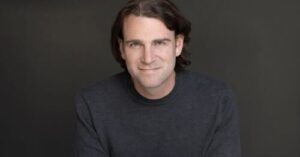The scientific and medical communities are mourning the loss of Dr. Nolan Williams, a visionary neuroscientist, psychiatrist, and professor whose groundbreaking work transformed the understanding and treatment of psychiatric and neurological disorders.

Nolan Williams M.D Stanford Calif: Pioneering Neuropsychiatrist and Innovator in Brain Stimulation Research, Dr. Nolan Williams, Dies
Dr. Williams, Associate Professor of Psychiatry and Behavioral Sciences at Stanford University and Director of the Stanford Brain Stimulation Lab, was widely regarded as one of the foremost innovators in modern neuropsychiatry. His passing marks a profound loss for the fields of psychiatry, neuroscience, and translational medicine.
Throughout his career, Dr. Williams devoted himself to the pursuit of one goal — to develop innovative technologies capable of modulating disrupted neural circuits in individuals suffering from mood disorders, obsessive-compulsive disorder, and other neuropsychiatric illnesses. His research integrated neuroimaging, therapeutics, and neurotechnology to create more precise, rapid, and effective treatments for patients worldwide.
Among his many achievements, Dr. Williams and his team pioneered the Stanford Accelerated Intelligent Neuromodulation Therapy (SAINT) — a non-invasive, rapid-acting brain stimulation treatment for treatment-resistant depression. The therapy revolutionized psychiatric care by offering life-saving relief in a fraction of the time required for traditional treatments.
SAINT received FDA Breakthrough Device Designation in 2021 and FDA Clearance in 2022, becoming the first psychiatric treatment to qualify for Medicare New Technology Add-On Payment (NTAP). By 2024, SAINT was being used in hospitals and research centers around the world, offering hope to patients for whom conventional therapies had failed.
Dr. Williams was also at the forefront of research into psychedelic medicines for neuropsychiatric conditions, conducting the first mechanistic clinical trials investigating the neurobiological effects of ibogaine. His pioneering studies helped shape the next generation of treatment approaches, combining rigorous neuroscience with a compassionate focus on patient outcomes.
Triple board-certified in neurology, psychiatry, and behavioral neurology/neuropsychiatry, Dr. Williams earned his M.D. and completed dual residencies in neurology and psychiatry at the Medical University of South Carolina (MUSC). His unique expertise bridged the gap between mind and brain — between understanding illness and healing it.
Over the course of his distinguished career, Dr. Williams received numerous accolades, including honors from the National Institute of Mental Health, Society of Biological Psychiatry, One Mind Institute, and the Brain & Behavior Research Foundation, where he was awarded both the Gerald L. Klerman Award and the Colvin Prize.
Beyond his remarkable intellect and leadership, colleagues remember Dr. Williams as a compassionate mentor, a generous collaborator, and a deeply caring physician whose drive to alleviate suffering inspired everyone around him. His humility, curiosity, and boundless dedication to science and humanity left an indelible mark on those who had the privilege of working with him.

Dr. Williams’ passing is not only a tremendous loss to Stanford University, but to the global medical community. His legacy — embodied in the lives improved through his research and the students and colleagues he inspired — will continue to shape the future of neuroscience and mental health care for generations to come.
Details regarding memorial services and tributes to honor Dr. Williams’ life and work will be announced by Stanford University in the coming days.


